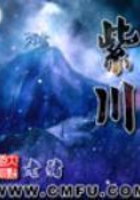Sceptical Doubts Concerning the Operations of the Understanding.
PART I.
A/LL the objects of human reason or enquiry may naturally be divided into two kinds, to wit, , and . Of the first kind are the sciences of Geometry, Algebra, and Arithmetic; and in short, every affirmation which is either intuitively or demonstratively certain. , is a proposition which expresses a relation between these figures. , expresses a relation between these numbers. Propositions of this kind are discoverable by the mere operation of thought, without dependence on what is anywhere existent in the universe.
Though there never were a circle or triangle in nature, the truths demonstrated by Euclid would for ever retain their certainty and evidence.
Matters of fact, which are the second objects of human reason, are not ascertained in the same manner; nor is our evidence of their truth, however great, of a like nature with the foregoing. The contrary of every matter of fact is still possible; because it can never imply a contradiction, and is conceived by the mind with the same facility and distinctness, as if ever so conformable to reality. is no less intelligible a proposition, and implies no more contradiction than the affirmation, . We should in vain, therefore, attempt to demonstrate its falsehood. Were it demonstratively false, it would imply a contradiction, and could never be distinctly conceived by the mind.
It may, therefore, be a subject worthy of curiosity, to enquire what is the nature of that evidence which assures us of any real existence and matter of fact, beyond the present testimony of our senses, or the records of our memory. This part of philosophy, it is observable, has been little cultivated, either by the ancients or moderns; and therefore our doubts and errors, in the prosecution of so important an enquiry, may be the more excusable; while we march through such difficult paths without any guide or direction. They may even prove useful, by exciting curiosity, and destroying that implicit faith and security, which is the bane of all reasoning and free enquiry. The discovery of defects in the common philosophy, if any such there be, will not, Ipresume, be a discouragement, but rather an incitement, as is usual, to attempt something more full and satisfactory than has yet been proposed to the public.
All reasonings concerning matter of fact seem to be founded on the relation of . By means of that relation alone we can go beyond the evidence of our memory and senses. If you were to ask a man, why he believes any matter of fact, which is absent; for instance, that his friend is in the country, or in F/RANCE; he would give you a reason; and this reason would be some other fact; as a letter received from him, or the knowledge of his former resolutions and promises. A man finding a watch or any other machine in a desert island, would conclude that there had once been men in that island. All our reasonings concerning fact are of the same nature. And here it is constantly supposed that there is a connexion between the present fact and that which is inferred from it. Were there nothing to bind them together, the inference would be entirely precarious. The hearing of an articulate voice and rational discourse in the dark assures us of the presence of some person: Why? because these are the effects of the human make and fabric, and closely connected with it. If we anatomize all the other reasonings of this nature, we shall find that they are founded on the relation of cause and effect, and that this relation is either near or remote, direct or collateral. Heat and light are collateral effects of fire, and the one effect may justly be inferred from the other.
If we would satisfy ourselves, therefore, concerning the nature of that evidence, which assures us of matters of fact, we must enquire how we arrive at the knowledge of cause and effect.
I shall venture to affirm, as a general proposition, which admits of no exception, that the knowledge of this relation is not, in any instance, attained by reasonings
; but arises entirely from experience, when we find that any particular objects are constantly conjoined with each other. Let an object be presented to a man of ever so strong natural reason and abilities; if that object be entirely new to him, he will not be able, by the most accurate examination of its sensible qualities, to discover any of its causes or effects. A/DAM, though his rational faculties be supposed, at the very first, entirely perfect, could not have inferred from the fluidity and transparency of water that it would suffocate him, or from the light and warmth of fire that it would consume him. No object ever discovers, by the qualities which appear to the senses, either the causes which produced it, or the effects which will arise from it; nor can our reason, unassisted by experience, ever draw any inference concerning real existence and matter of fact.















